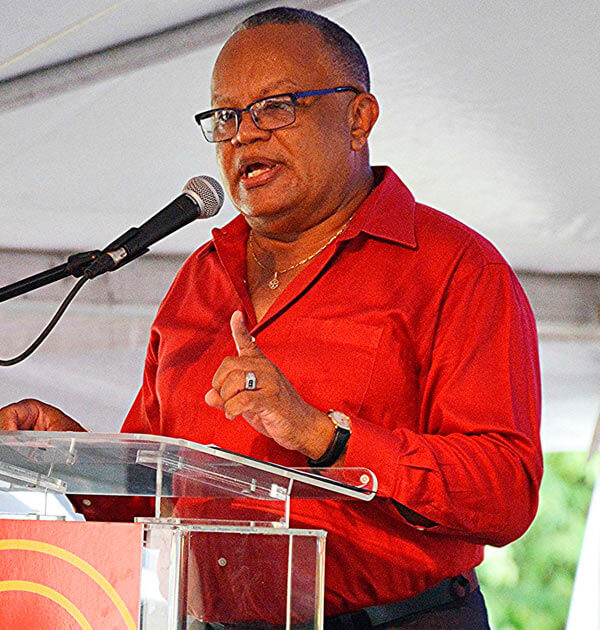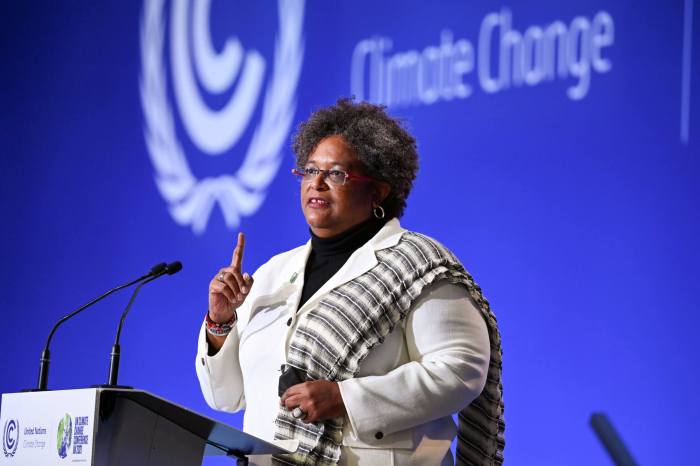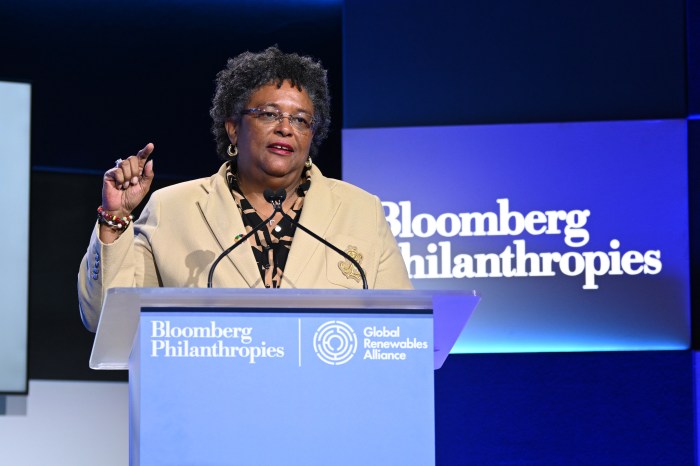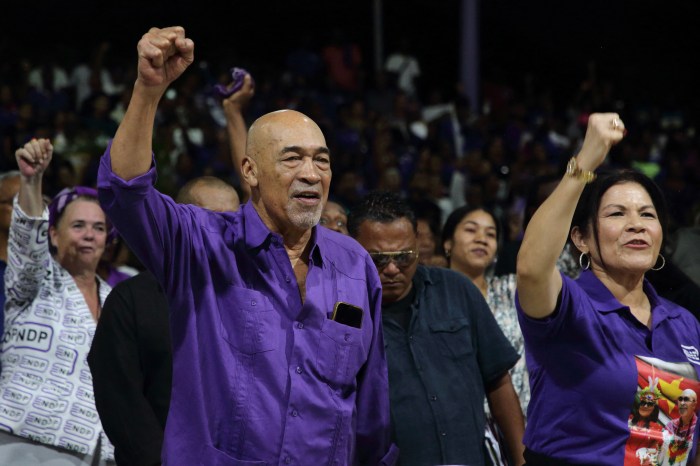A long-simmering issue of political control of Barbados’ only licensed television station, Caribbean Broadcasting Corporation, has now bubbled to the top with revelations that the ruling party owes the most to the financially troubled entity.
CBC is currently floundering with over $100 million (BDS$1 = 50 cents US) in debt and information was leaked over the weekend that the major entity not paying overdue bills to the cash-strapped TV station is the governing Democratic Labour Party which also stands accused of monopolizing broadcast of the airwaves to the exclusion of the Opposition.
The Sunday Sun newspaper published information revealing that the DLP owes $106, 609 of the $1.6 million some 254 clients have in outstanding fees to the state company that is so out of money it reportedly has been paying staff late, and recently cried broke when told to give workers wage increases.
The leaked information came one week after the Opposition Barbados Labour Party publicly complained that it could not get coverage on CBC even if that political entity offered to pay for airtime.
A BLP case in point was CBC’s refusal to carry a delayed paid broadcast of that party’s annual conference of Oct. 27 to 29, despite the TV station airing an early September address to the ruling DLP annual conference by party president Freundel Stuart, who is also prime minister of Barbados.
“Apparently CBC a Barbadian station, financed by the tax payers of Barbados, which should be operating for all Barbadians seems to have a recurrent problem with the requests of this country’s main Opposition party the Barbados Labour Party,” the BLP General Secretary Dr. Jerome Walcott complained.
The ruling DLP General Secretary, George Pilgrim, never responded to accusations of partisan use of the state-owned media house, but blasted unnamed persons for leaking information that his party owes the most money to CBC.
While not denying the debt which amounts to 10 percent of money owed to the loss-making TV station, Pilgrim who sits on the company’s board told the online newspaper Barbados TODAY, “the staff told me that they were concerned because they don’t know how a fellow staff member could betray the organization like this when they know full well that we go to the banks for loans. The next minute CBC is going to be treated as an institution that is not financially stable. This is not about the party, it is about the staff. It adds to the vulnerability of all the staff and it is not at all fair to them.”
Issues concerning CBC’s coverage have transcended administrations of both political parties with claims and counter-claims that whoever is in government uses the TV station as a tool.
Observers have wondered at the fact that for a developing country solid in practices of democracy, successive Barbados governments have never seen it fit to open TV broadcast licences to private enterprise.
The first mood swing in this regard came from the Opposition BLP when it declared in its manifesto for the 2013 general elections, “we will urgently and immediately issue additional television licences to ensure that our citizens are given choice with respect to their access to news, information and entertainment on free to air television.”
Having lost that poll and with another constitutionally due in early 2018, the BLP General Secretary, Walcott, could only issue veiled threats to CBC.
“The longest day must come to an end and eventually the people of Barbados will determine the fate and future of the CBC,” he said implying that if Barbadians elect his party into government in the coming elections TV licences will be available to others.























